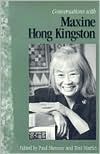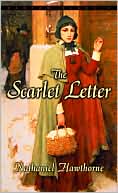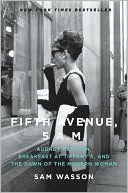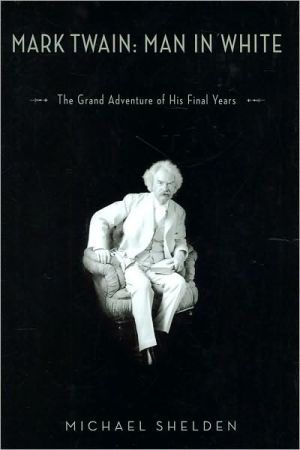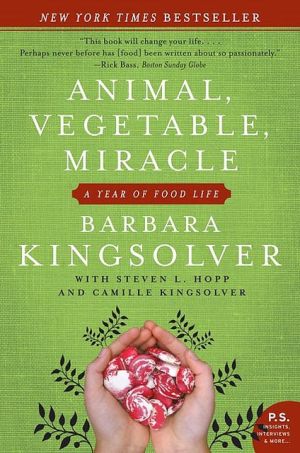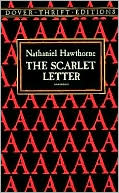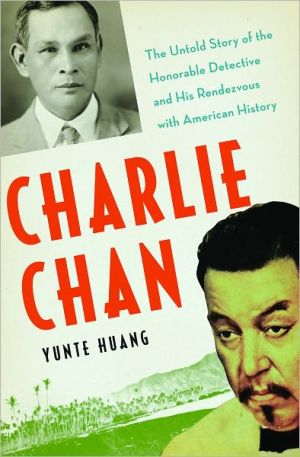Conversations with Maxine Hong Kingston
In 1976 Maxine Hong Kingston burst into American literature with the publication of The Woman Warrior: Memoirs of a Girlhood Among Ghosts. Since then her subsequent works—China Men (1980) and Tripmaster Monkey: His Fake Book (1989)—have startled readers with their complex projections of Asian-American life as a bicultural and bilingual adventure filled with contemporary confusions and ancient legends, inherited values, and new loyalties. Kingston has written of her family upbringing in...
Search in google:
In 1976 Maxine Hong Kingston burst into American literature with the publication of The Woman Warrior: Memoirs of a Girlhood Among Ghosts. Since then her subsequent works—China Men (1980) and Tripmaster Monkey: His Fake Book (1989)—have startled readers with their complex projections of Asian-American life as a bicultural and bilingual adventure filled with contemporary confusions and ancient legends, inherited values, and new loyalties. Kingston has written of her family upbringing in Stockton, California, of the stories her mother told her as advice and warning, of her father's illegal arrival in the United States, of the exploits of grandfathers who worked on the rails in California, of San Francisco street life in the 1960s, and of traditional Chinese legends. Whatever her subject, she claims America for herself and other Asian Americans whose histories are an essential part of the larger American tapestry. In this collection of interviews Kingston talks about her life, her writing, and her objectives. From the first, her books have hovered along the hazy line between fiction and nonfiction, memoir and imagination. As she answers her critics and readers, she both clarifies the differences and exults in the difficulties of distinguishing between the remembered and the re-created. She explains how she worked to bridge her parents' Chinese dialect with American slang, how she learned to explore her inheritance and find new relevance in her mother's "talk stories," and how she developed the complex juxtapositions of myths and memoir that fill her books. Always savvy, often provocative, constantly amused and amusing, Kingston provides a vivid commentary on her writing and offers insight into a body of her work. Paul Skenazy is a professor of American literature and provost at Kresge College, University of California, Santa Cruz. Tera Martin is completing her doctorate in American literature at University of California, Santa Cruz.Library JournalCompiling these 16 interviews with Kingston, dating from 1977 to 1996 and dealing with The Woman Warrior (LJ 9/15/76), China Men (LJ 6/15/80), and Tripmaster Monkey (LJ 4/1/89), seems like a great idea. However, without faulting either Kingston or the interviewers, this collection has more than a few flaws. Since Kingston cannot change her girlhood or the influences on her writing, and the interviewers cannot avoid asking about them, the same points get repeated endlessly; and Kingston's responses to her critics are not balanced by the inclusion of the criticism itself. Although Kingston proves articulate, generous, and patient in sharing her thoughts on a variety of subjects (e.g., the writing experience, peace, and being Asian), influences (e.g., William Carlos Williams, Virginia Woolf, and Walt Whitman), and her life, the excellent 20-page introduction summing up the interviews and the five-page chronology putting everything neatly in place seem quite sufficient. Recommended only for large public libraries.--Kitty Chen Dean, Nassau Coll., Garden City, NY
Kay Bonetti:In The Woman Warrior you say that "Even now China wraps double binds around my feet," and I wondered if that was still true for you or if these two books brought liberation for you and resolution of any kind of the tensions?\ Maxine Hong Kingston: I no longer feel double binds around my feet. I feel like a very peaceful, healthy person and I don't know why. I don't think it's because I wrote the books. It would seem that writing books would get all kinds of neuroses straightened out because of the intense examination, but I don't see the direct relation to my own psychology. I have a feeling that it's just time; it makes you tired of hassling.
IntroductionChronologyMaxine Hong Kingston: Something Comes from Outside Onto the Paper1Honolulu Interview: Maxine Hong Kingston5Talk with Mrs. Kingston14Interview with Maxine Hong Kingston21An Interview with Maxine Hong Kingston33To Be Able to See the Tao47Eccentric Memories: A Conversation with Maxine Hong Kingston67Talking with the Woman Warrior77Writing the Other: A Conversation with Maxine Hong Kingston86Coming Home104Kingston at the University118Interview with Maxine Hong Kingston159Maxine Hong Kingston168Creating Peace Out of Pathos189Reinventing Peace: Conversations with Tripmaster Maxine Hong Kingston192As Truthful as Possible: An Interview with Maxine Hong Kingston215Index229
\ Library JournalCompiling these 16 interviews with Kingston, dating from 1977 to 1996 and dealing with The Woman Warrior (LJ 9/15/76), China Men (LJ 6/15/80), and Tripmaster Monkey (LJ 4/1/89), seems like a great idea. However, without faulting either Kingston or the interviewers, this collection has more than a few flaws. Since Kingston cannot change her girlhood or the influences on her writing, and the interviewers cannot avoid asking about them, the same points get repeated endlessly; and Kingston's responses to her critics are not balanced by the inclusion of the criticism itself. Although Kingston proves articulate, generous, and patient in sharing her thoughts on a variety of subjects (e.g., the writing experience, peace, and being Asian), influences (e.g., William Carlos Williams, Virginia Woolf, and Walt Whitman), and her life, the excellent 20-page introduction summing up the interviews and the five-page chronology putting everything neatly in place seem quite sufficient. Recommended only for large public libraries.--Kitty Chen Dean, Nassau Coll., Garden City, NY\ \
